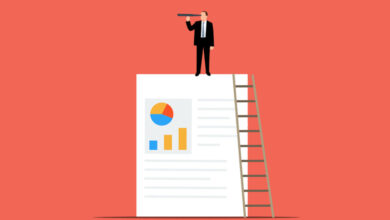Public Policy Careers: Roles, Education and Skills

If you want to work in a career that allows you to have an influence on the regulations and laws that govern industries and certain groups of people, a public policy career might be the ideal choice for you. Students who major in this field have the opportunity to gather relevant data, analyze issues, and come up with proposals for viable solutions to a wide range of issues.
A position in public policy allows you to combine data analytics, political science, and research to promote change. Read on to find out more about what some of the most popular public policy careers are, the skills that may be necessary to work in this field, the job outlook, and the average salary for these positions.

Why Work in Public Policy?
Today, the world needs a new generation of leaders that are motivated to find the best solutions to the problems faced by societies. Leaders of businesses and non-profits, lawyers, government contractors, social entrepreneurs, consultants, and professionals in heavily regulated industries need to understand how they can influence policy and measure the impact of their programs.
A career in public policy allows you to develop the necessary skills to ask the hard questions, use data and follow the evidence to get the answers you need, and make a real, lasting impact on communities.
Public policy graduates often lead successful careers across a range of sectors in the US and worldwide. This career path can lead you to work in the public, private, and non-profit sector in a range of roles including policy advisor, program officer, financial analyst, research specialist, government officers, company director and more.
What are Careers in Public Policy?
Careers in public policy are positions that tend to be focused on informing and improving regulations and laws in order to bring about changes that benefit a community. Those who work in this field are tasked with conducting research that inspires change, solves problems, and develops solutions that can make a difference. Find out more about what can you do with a master’s in public policy from Pepperdine University.

What Skills Do You Need to Work in Public Policy?
While you will learn many job-specific skills for working in public policy during education, these roles often require a set of soft skills in order for professionals to be successful. If you are interested in a career in public policy, some of the main skills to focus on building include:
1. Critical Thinking Skills
Strong critical thinking skills allow public policy professionals to perform analysis on a variety of different proposals, understand potential outcomes for certain laws, and make the right decisions as necessary.
2. Implementation
Implementation is a skill necessary to be able to carry out any policy that you have worked on developing. This could involve forming a rollout plan through meeting with stakeholders and other involved individuals and groups.
3. Attention to Detail
Public policy career paths often involve work that requires a keen eye for detail. In these roles, the work that you do may have an influence on regulations and laws, which makes it important to be able to do due diligence.
4. Strategy
As a public policy professional, you will likely need to be able to make strategic decisions. In these roles, the ability to form strategies and advise other decision makers is hugely important.
5. Research Skills
The majority of public policy roles involve some kind of data gathering and analysis. Working in public policy requires strong research skills and an ability to perform the necessary research to advise law makers, policy makers, stakeholders, and others.
6. Communication Skills
Public policy professionals need to be excellent communicators. In these roles, professionals will often be tasked with meeting and speaking with different people from a wide range of industries. They need to have the necessary skills to clearly put information across. Public speaking is worth becoming familiar and confident with since it is often a key part of this role.
Public Policy Job Outlook
The career outlook for a career in public policy will depend on the industry that you decide to pursue. By 2029, the Us Bureau of Labor Statistics expects a 17% growth for social and community service managers and social and human service assistants.
The average salary for public policy professionals is currently around $45k per year; however, the salaries can vary a lot as there are so many different public policy positions to consider. How much you earn will depend on various factors including the field of work that you choose, your educational level, and your location.

How to Build a Public Policy Career
If you want to become a public policy professional, consider the following steps:
1. Consider Your Ideal Career Path
When it comes to public policy careers, there is a large variety of options that you can consider. Spend some time researching public policy career options and think about what your ideal career path looks like. This will help you choose the right educational pathway and support any additional decisions you make in terms of meeting your overall career goals.
2. Get a Bachelor’s Degree
To get your career in public policy started, you will usually need to earn a bachelor’s degree in public policy or a relevant field. While studying at this level, consider taking courses and elective modules that focus on ethics in public management, political science, policy development, economic analysis, or administrative leadership to support your future career. It is also worth considering applying for internships as a student since this will help you gain necessary experience in the field along with allowing you the opportunity to start building your professional network by connecting with professionals in the field.
3. Get Professional Certifications
It is worth spending some time exploring the different certifications that are available to you as a public policy professional. These certifications are designed to help professionals expand their knowledge and will help you build your confidence when it comes to applying for various positions as a graduate. You can find various public policy organizations that offer different certifications in each state.
4. Consider a Fellowship
It is worth considering a fellowship, which is a stipend-based work opportunity that allows you to get additional experience for your resume. Most of the time, fellowship recipients should be pursuing an advanced degree, and need to demonstrate their career ambitions in their application.
5. Join a Professional Organization
As is the case with many career paths, joining a professional organization in public policy can be an ideal way to meet and network with other professionals in the field who can provide mentorship, help you learn more about your chosen career path or write letters of recommendation for job opportunities or graduate school. There are several benefits of joining a professional organization including networking events, training, seminars, conferences, and workshops.
6. Consider an Advanced Degree
While an advanced degree is not always essential for some public policy career paths, you may consider studying at the graduate level to boost your resume and become eligible for further career opportunities. In general, a master’s degree will take around one to two years to complete. You can complete a master’s degree in public policy or opt for a relevant specialist subject such as education, local or federal government, research and development, non-profit management, and social advocacy.

Careers Available for Public Policy Graduates
The careers available to you as a public policy graduate will typically depend on your level of educational achievement and any experience you have gained in the field.
Bachelor’s Degree Graduates
If you have gained a bachelor’s degree in public policy or a relevant field, you may want to consider the following career options:
1. Market Researcher
The role of a market researcher involves using marketing trends, polls, surveys, and a variety of other methods and means to monitor trends and produce forecasts. They will usually work for organizations to help company stakeholders get a better understanding of the economy and make sure that different products and services are priced fairly while meeting customer and client demands.
2. Legislative Aide
A legislative aide is mainly responsible for assisting an elected official with performing administrative tasks. This is a supportive role that may include performing research, writing important communications, managing a calendar, taking meeting notes and more.
3. Community Relations Coordinator
The role of a community relations coordinator involves the development of programs that support members of a certain community. These professionals are tasked with finding new ways to raise awareness of various community issues, and the role also involves conducting research to learn more about the needs of community members. They will usually work closely with educators, public administration professionals, and social workers.
4. Public Affairs Specialist
A public affairs specialist forms and maintains a public image for their clients. They can work with individuals, groups, organizations, and government agencies. This role involves writing press releases, working closely with the media, creating media kits, scheduling interviews for clients, and answering media questions. They may also work on campaigns designed to increase awareness of their client and boost positive public perception.

Master’s Degree Graduates
With a master’s degree in public policy or a similar subject, you can move into higher-paid roles with more responsibility. Some popular roles that hire public policy professionals with an advanced degree include:
1. Regulatory Affairs Manager
This role involves the development and management of regulatory processes, particularly for government agencies. A regulatory affairs manager is responsible for monitoring budgets, submitting required paperwork to government agencies, and handling interactions with government officials.
2. Program Manager
The main responsibility of a program manager is to oversee the projects within an organization. They are responsible for ensuring that the business’s actions are in support of strategies developed by company stakeholders, and the role involves managing budgets for various programs. Program managers may also work on coordinating different projects and oversee project managers to ensure that they are effectively managing projects they are responsible for.
3. Budget Analyst
The role of a budget analyst involves assessing budgets and providing necessary budget guidance to government agencies and companies. The role involves evaluating proposals and preparing budget reports to better determine the best ways for an organization to allocate its funds.
4. Political Analyst
The role of a political analyst involves researching the pros and cons of various proposed policies. They use their findings to provide advice and guidance to stakeholders. The role involves collecting data from various sources including interviews, election results and services to evaluate various political theories and get a better understanding of trends. The role also involves making political predictions, publishing reports for stakeholders, and developing new ways to provide public education on political issues.

Doctorate Degree Graduates
A doctorate degree is typically the highest level of education attainable in public policy, and can open the door to several further roles, including:
1. Managing Director
The role of a managing director involves overseeing an organization’s general operations. They work on developing strategies for business growth, meet with company representatives and stakeholders, and ensure that the business operations are in support of the overarching goals of the company.
2. Sociologist
A sociologist works in a role where they are mainly responsible for researching various aspects of social interactions and human behavior. They do this through a variety of ways including conducting surveys, focus groups and interviews, analyzing data, making observations, and then write reports based on what they find. Sociologists may also put the data that they collect to use in testing sociological theories and may write and public research papers that are used by other professionals in the industry.
3. University Professor
A professor of public policy is mainly responsible for instructing students in public policy and related topics. The role involves planning lectures, developing the curriculum, overseeing exams, and offering advice and guidance to students. Along with the educational side of this role, many public professors are also researchers in their chosen field.
Public policy is a wide-reaching career path with many different roles available in various industries and sectors. A career in public policy may be the ideal choice for you if you are interested in a career where you can influence change and make a positive difference.



